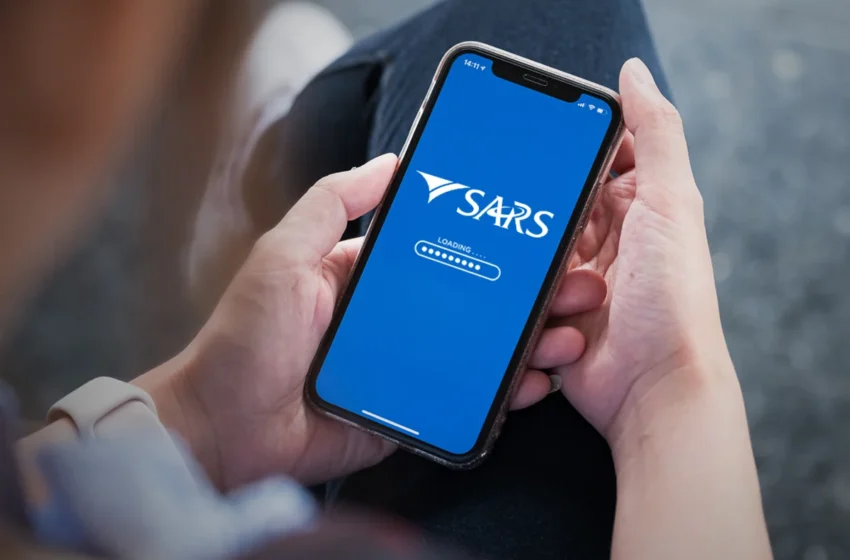SARS provides key clarification on refund or debt less than R100 — here’s what you should know

Why SARS won’t pay or collect refunds under R100 — What it means for your 2025 tax return
During the 2025 tax season, one of the most common questions among South African taxpayers is about refunds and small debts—especially when SARS says a refund has been processed, but the money doesn’t show up.
The answer may lie in a small but important rule on the SARS website that many overlook. In a statement on its website, SARS wrote:
“If a refund or debt is less than R100, the refund or debt is rolled over to the next tax year. This means that such a refund or debt is not payable immediately but remains as a balance on your account until it exceeds R100 and becomes payable. You can view your account on SARS eFiling or the SARS MobiApp.”
It also added:
You must make sure that your assessment is complete. For example, if you received rental income or other income, or have deductions in addition to what we reflected in your assessment, you must file a tax return on or before the due date for non-provisional taxpayers. Your updated tax return must have the new information in addition to what SARS has pre-populated on your tax return. Keep any supporting documents for changes you want us to make to your auto-assessment, because SARS may ask for it.
What Does This Really Mean?
If, after SARS completes your tax assessment, the system determines that:
-
SARS owes you money (a refund), or
-
You owe SARS money (a tax debt),
and the amount is less than R100, it won’t trigger an immediate payment or collection. Instead, SARS will keep it on record and roll it over to your tax account for the next year.
This means:
-
If your refund is R89, SARS won’t send it to your bank account now. It will sit on your profile as a balance.
-
If you owe R75, SARS won’t demand payment immediately. That amount will also stay on your profile until next year.
Once your future tax refund or debt pushes the total above R100, then SARS will either process the payment or require you to settle the debt.
Why Does SARS Do This?
SARS manages millions of transactions every year. Processing very small refunds or debts below R100 for every taxpayer could:
-
Cost more in admin and banking fees than the value of the refund itself.
-
Lead to cluttered financial records and unnecessary delays.
-
Distract from the focus on bigger compliance and refund issues.
By applying the R100 threshold rule, SARS ensures efficiency while still tracking every cent you are owed—or owe.
How Do You Check If You Have a Rolled-Over Refund or Debt?
You can easily check your tax account balance and refund status using:
-
SARS eFiling (via your desktop or mobile browser)
-
The SARS MobiApp, available on iOS, Android, and Huawei app stores
Once logged in, go to “Account” or “Statement of Account”, and you’ll be able to view any balances carried forward from the previous year—even if they’re small.
What You Should Keep in Mind
-
Your money isn’t lost—it’s still in your SARS profile and will be added to your next assessment result.
-
If your total refund later exceeds R100, SARS will pay out the full eligible amount.
-
If you later owe more than R100 (including the carried-over debt), SARS will send a payment request or statement of account.
This R100 rule is nothing to panic about—it’s a standard SARS policy to streamline low-value transactions. However, it’s still important to keep track of your balances, especially if you’re expecting a refund. By checking your SARS profile regularly, you can stay informed about what’s pending, what’s been carried forward, and what’s likely to be paid out or due next.
READ ALSO
South Africa: SARS lists 4 digital platforms to file tax return without stress
Confused about tax season? SARS explains common questions to help you file with ease
SARS unveils platform to help South Africans fix tax-related issues from home — here’s how to use it
South Africa 2025 tax season guide: 8 important documents needed to submit your income tax return
2025 tax season: 3 key things you need to register as a taxpayer in South Africa
SARS 2025 tax season update for North West communities — here’s all to know
2025 tax season: SARS to visit Western Cape — check your area, date, time, other details
SARS is coming to Limpopo: Date, time, and all you should know
SARS shares key updates for Limpopo, Western Cape, Free State, Northern Cape communities
SARS finally speaks on system glitch, gives reason for extension
South Africa: SARS gives new update, deadline on tax returns — key details to know
What the SARS glitch reveals about South Africa’s digital innovation and its implications
SARS apologises for major glitches on tax day: What went wrong & what it means for taxpayers
Categories of taxpayers excluded from SARS auto-assessment 2025 — and why
SARS 2025 auto-assessment: Step-by-step guide to navigate the process
SARS 2025 auto-assessment: Step-by-step guide to navigate the process
SARS introduces new changes ahead of 2025 tax season… all you should know

